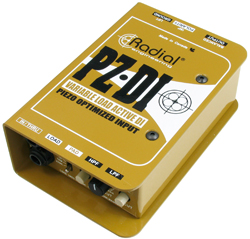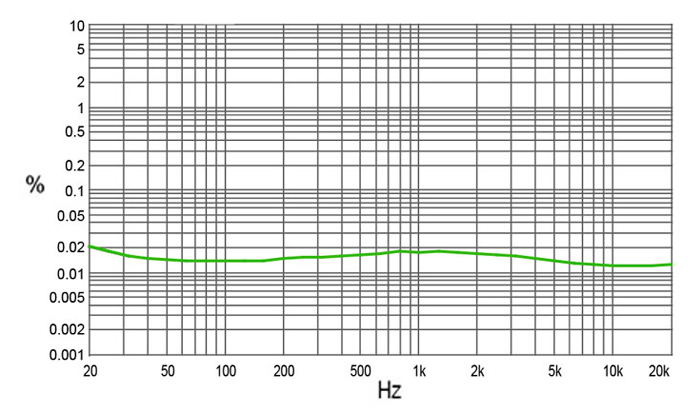
I plugged a variety of sources into the PZ-DI and checked out the controls, and then grabbed an acoustic guitar with a piezo pickup from my inventory and tried the different input impedance load settings.
To my ears, the 10M Ohm setting sounded the best with this particular guitar, providing a nice, full sound with a very low noise floor. I really like having the adjustable lo-cut and switched hi-cut filters onboard—they could come in very handy for a solo or duo act that doesn’t have a full-featured mixing console.
Variety Of Applications
Assured all was working correctly and duly impressed with the PZ-DI, I took it out on some gigs. The first show was a more traditional application, a bass player and keyboard rig in a lounge band. For the bass player, I inserted the unit between his Music Man 5 string and bass rig and tried both 220k and 1M settings on the load switch.
Both sounded great, with the 1M setting seeming to be a little brighter to the band’s engineer. Next we tried the unit on the keys as well as a direct out from his keyboard amp and both routing schemes sounded right on.
Not having any acoustic guitar gigs coming up, I next called a friend and asked her if she’d give the PZ-DI a workout with her duo. She was happy to help out, and between the two musicians I would get to hear the unit with a variety of their guitars.
Her PA is simple, with a small console feeding three identical powered top cabinets and a small subwoofer. One top cabinet is used as a floor wedge for both singer/musicians, and the other two are placed at the sides.
For the beginning of the show, we put the PZ-DI on a Taylor 6-string acoustic, using the 10M load setting. I also engaged the hi-cut filter and rolled in a little of the lo-cut filter.
These same settings were still in place later in the show on an Ovation 6-string and then a 12-string. For a few songs she played a ukulele, and we ran the DI flat with no filters.
All of the instruments sounded great, and both musicians commented that their guitars, especially the 12-string, really sounded fantastic, both in comparison to the basic transformer DIs they normally use as well as plugging directly into the line input of the console.
While kind of a specialized unit, the PZ-DI is a great addition to any inventory, especially if you work with a lot of acoustic guitars or other instruments with piezo pickups. U.S. list price for the PZ-DI: $260.
Craig Leerman is senior contributing editor for ProSoundWeb and Live Sound International and is the owner of Tech Works, a production company based in Las Vegas.

